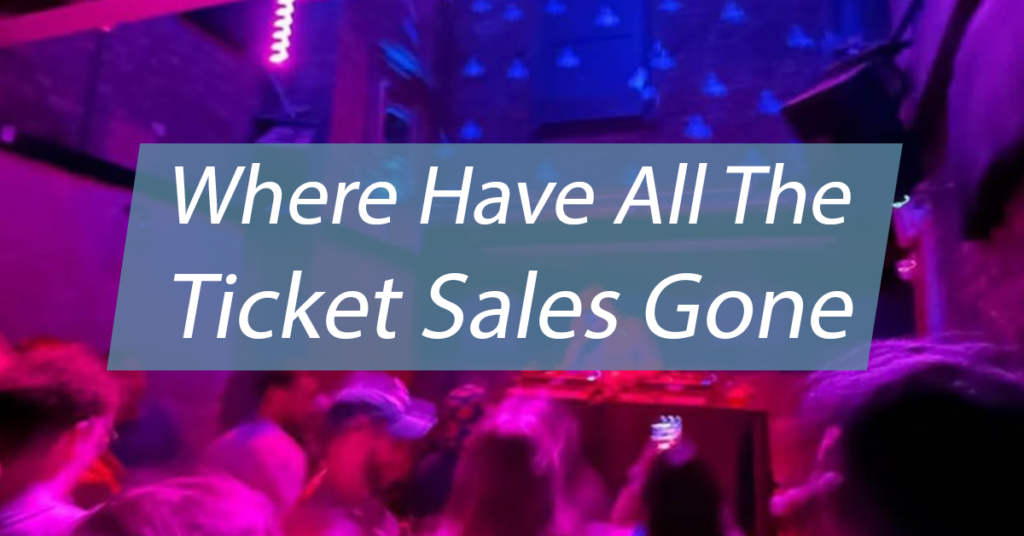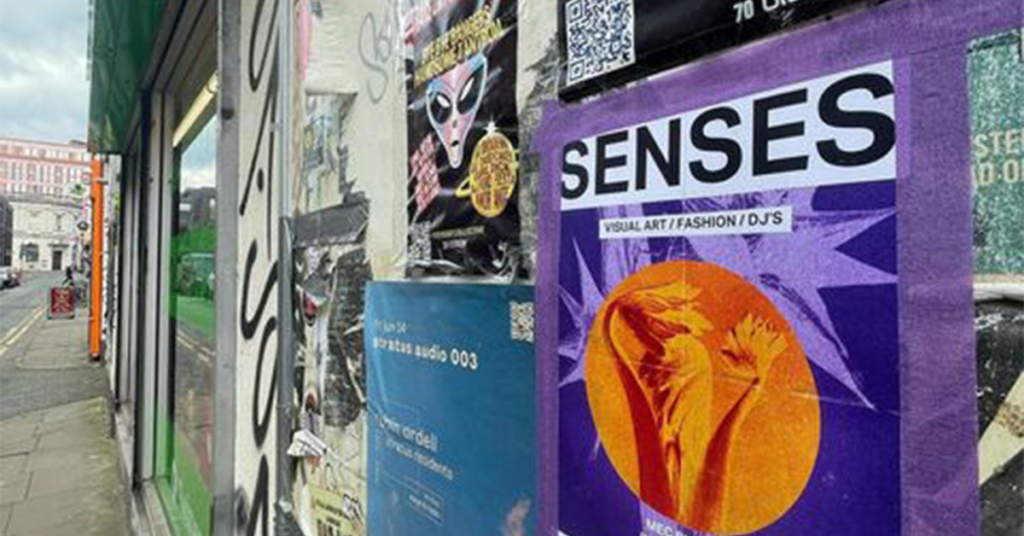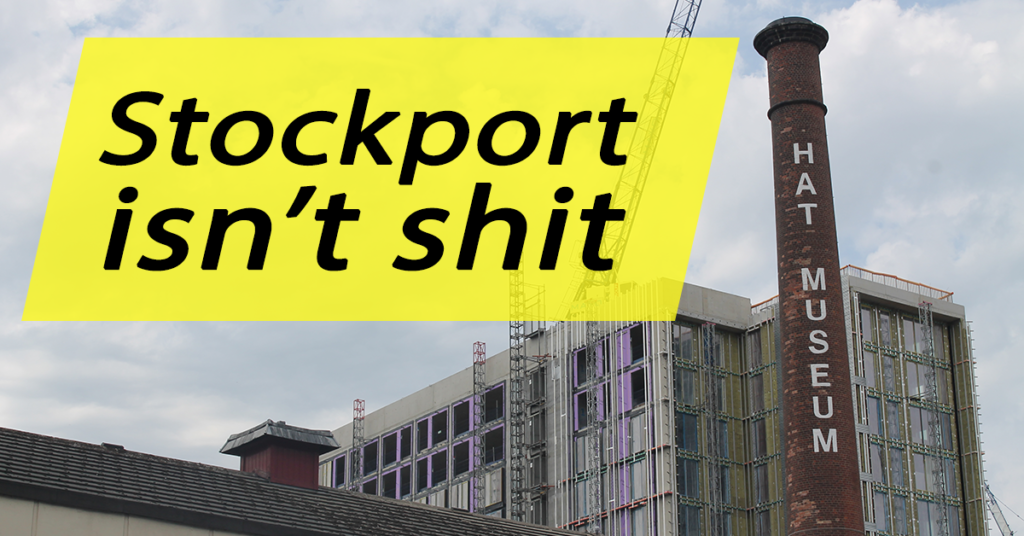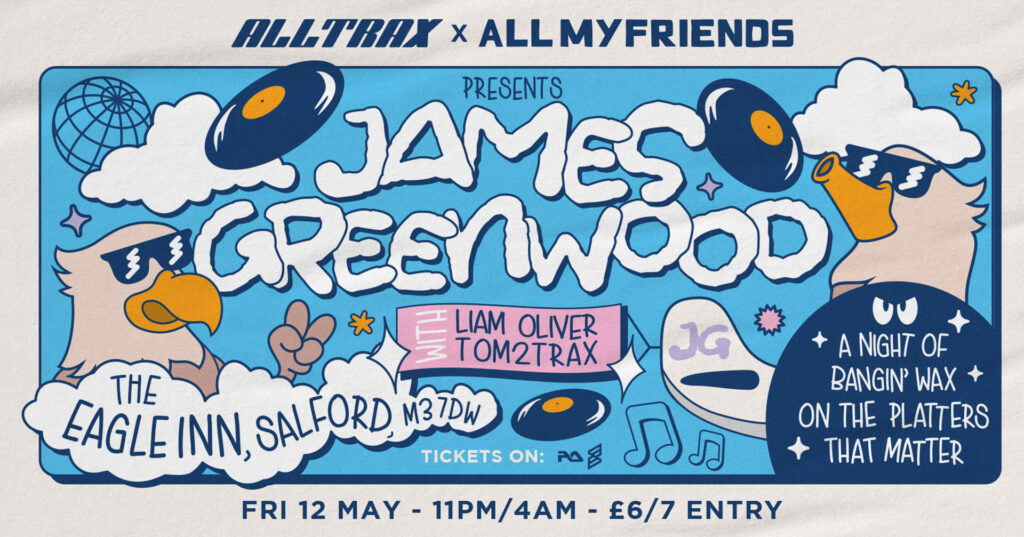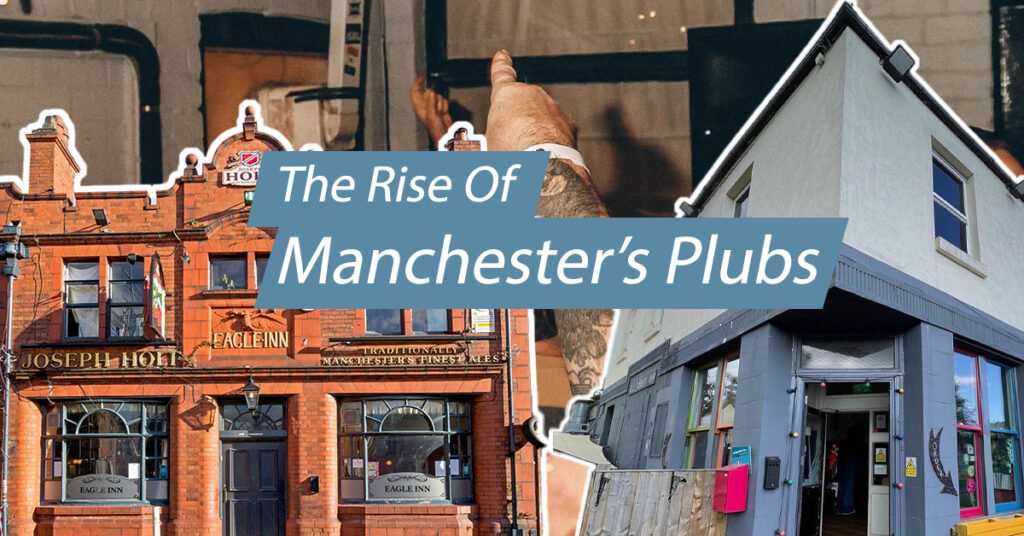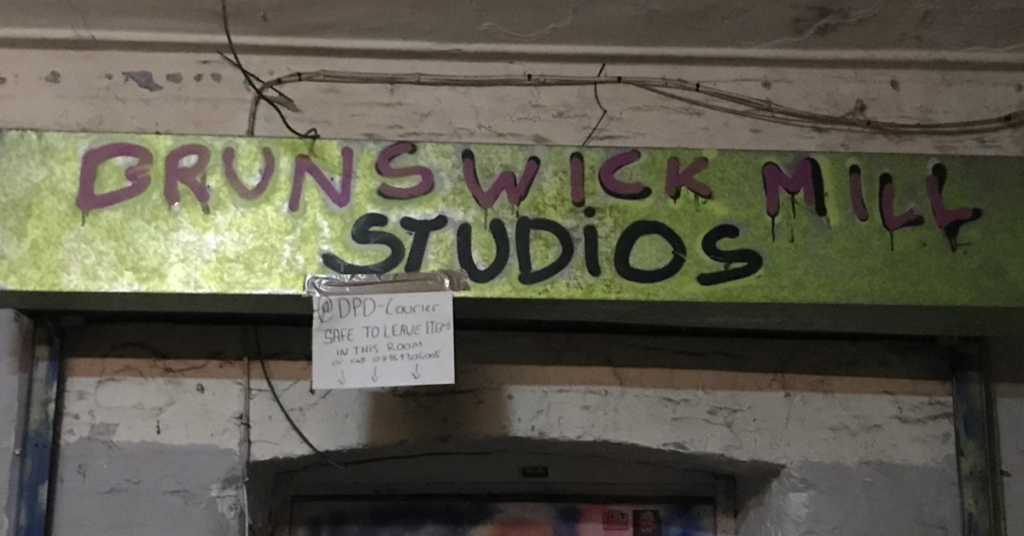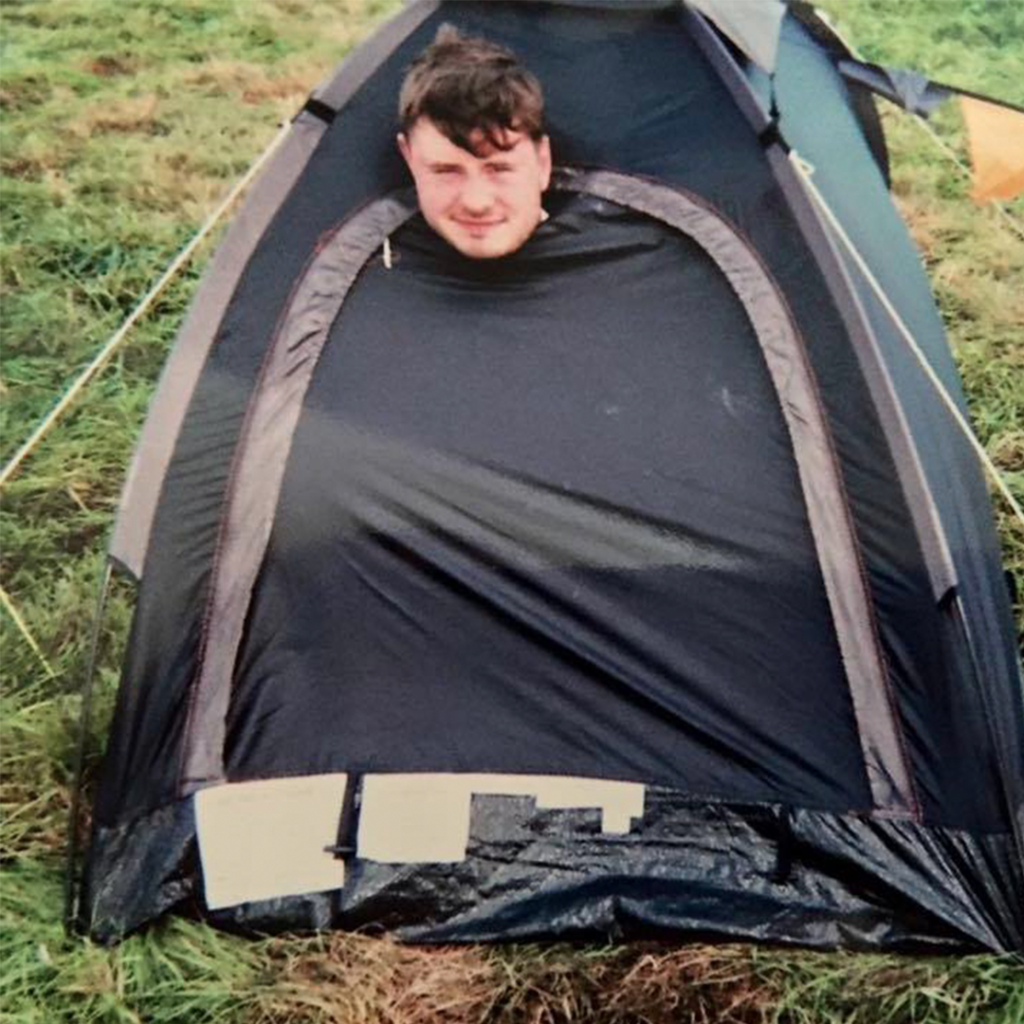
Written By – Liam Donoghue
AMF Head Honcho – Author Bio
AMF founder, resident, writer, and podcaster.
Facebook – Instagram – Soundcloud – Youtube
2024 was a rough year for promoters.
Pre-sale tickets to all but the biggest events (Looking at you WHP) were slow to non-existent for many people throwing parties in the rainy city and beyond. The dread I would feel opening Skiddle and RA everyday hoping to see that my night had shifted a few tickets only to to see a big £0 staring back at me was palpable.
Running events is stressful enough as it is without having to hope and pray 90% of your ticket sales come through on the night (in many cases hours before or during your event) but that’s the place we seem to be in at the moment.
Once I realised that this issue was industry wide (after speaking to a good friend who runs a much bigger night than myself) and not because of anything bad my night was doing it did let me breathe a sigh of relief. Room2Move isn’t shit it’s just no one’s buying tickets at the moment.
But why is this happening? Pops Roberts raised the issue in the amazing interview she did for Off The Record in October 2024 and it’s a question I’ve been thinking about all year. Catch a snippet of that interview below.
The challenges of small club promoters were also mentioned by Rojakmcr in a great Instagram post breaking down the fine margins and increasing costs of running a club night in the 2020s. You can see a screenshot of the post below.
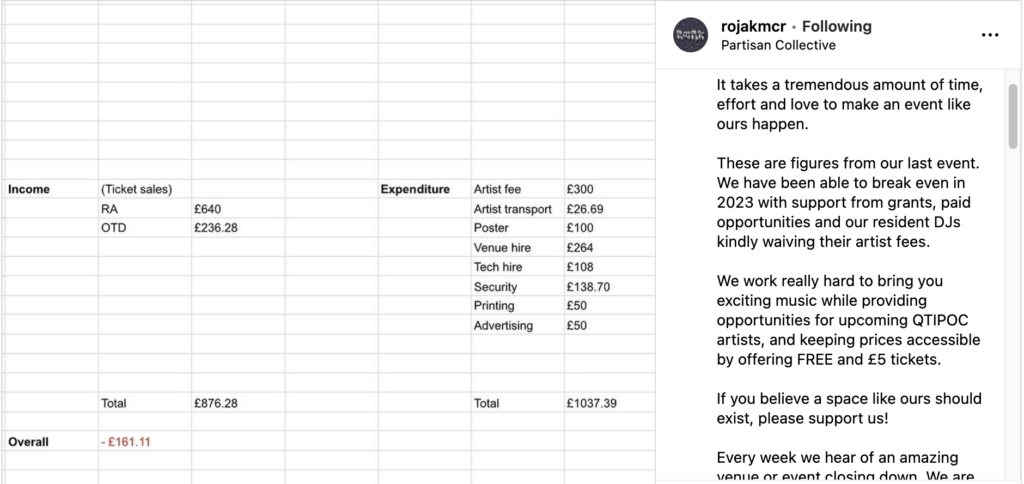
Other dance music outlets, DJ’s and promoters have tried tackling the issue too. So although it’s a well trodden topic of discussion by now I’m going to share my two cents on the state of clubbing ticket sales in this article (unpopular opinion alert, I don’t think it’s all Gen Z’s fault).
A quick note from myself
For this article I’m going to be drawing on my own experiences running Room2Move, a night set up by myself (Liam Oliver) and good friend and fellow DJ Tom2Trax. We’ve run the night since May 2023 and have so far focused on intimate events with local DJs. All the data and insights in this article have been taken from my own personal experiences and speaking with friends and people in the dance community.
Why is this happening
So why do I think this is happening? What’s my take? From what I can see there are 3 main contributing factors that are leading to fewer pre-sale tickets for small club nights and promoters. These are: ongoing cost of living issues, changing demographics, and an overall change in the dance music landscape.
I’ll address each of these points below and how they’re affecting small clubs and promoters:
Cozzy Livs
I don’t need to tell you that money for everyone except the 1% is tight at the moment. Rents, energy bills and food costs have all been sky-rocketing and it has hit regular people disproportionately hard (when doesn’t it).
This often means that people can’t commit to club night until very close to the event. When things are pretty hand to mouth, dropping even a tenner or a club night happening in a couple of weeks can feel tough. Will you have enough cash to enjoy the night? Will something else come up that means you can’t afford to go?
These are all things people don’t want to risk. It’s better to wait until the week of the event. A party selling out and you not going costs nothing. Dropping £22 on a ticket only to go through the stress of reselling when the event’s unlikely to sell out can be unwanted stress.
Changing demographics (“boo” Gen Z but not really)
I’ve always held the opinion that Gen Z don’t like to party at arms length. They’d rather practice mindfulness and crochet right?
I think it’s over simplistic and reductive to draw a parallel between the decline of club culture with the advancing age of Gen X’ers and people who were dropping pingers in the early 90’s.
That’s not to say that things haven’t changed in that time (more on that in the next point) but to blame Gen Z for not wanting to go out and get mortal seems like a cop out when there are bigger structural issues around dance music which need to be acknowledged.
I’m sure loads of 20 year olds still want to go out and party, maybe they don’t want to do it as much or as often but that’s something promoters need to adapt to, you can’t just throw all your scorn on young people for wanting to do other things. We need to work within the new reality to make our nights a success.
Overall changes in the dance music landscape
As I touched on in my previous point, the clubbing scene isn’t what it was in the 90s, 00s or even 2010s. All things go through cycles and the ebb and flow of popularity. We just find ourselves at a point currently where smaller club nights aren’t what people want.
You can understand why too, many people’s money is tight and it’s a safer bet booking a bigger night or festival with friends and to do them occasionally than heading out every weekend.
Obviously this isn’t something I was doing in my 20s but now I’m 34 and have a child I couldn’t get out every week even if I wanted to, and to be honest, not being a blithering train wreck every Sunday and blitzing 6 pints to sort myself out is actually quite nice.
That being said, there has been an obvious coalescence of power and influence by big clubs and events over the decades but this is something I feel has become even more noticeable since Covid. This push towards big events and one club cities can be attributed in part by the previous 2 points but also by pointing towards the ol’ wheels of capitalism. The Sasha Lords of the world will eat the weak.
Fewer small and medium sized clubs means less options for clubbers which mean more go to bigger and fewer events. The saga continues, rinse and repeat ad infinitum.
What does it mean for small promoters
So what does this all mean for small promoters on the metaphorical clubbing front line. The ones playing opening sets to empty rooms and valiantly manning the door to their chosen club, card reader in one hand and wristbands in the other?
Well below you can see a breakdown of Room2Move’s ticket sales from two of our previous events. One in March 2024 and one in August. If you want to see who was playing at this events you cna check our socials.
Note on data: These graphs are a combination of our ticket sales from Skiddle, RA and our take on the door. Any sales that look like they’ve taken place the day after the event are actually people paying on the door after midnight (talk about cutting it fine). The capacity of the venue we were throwing the party at was 80 cap.
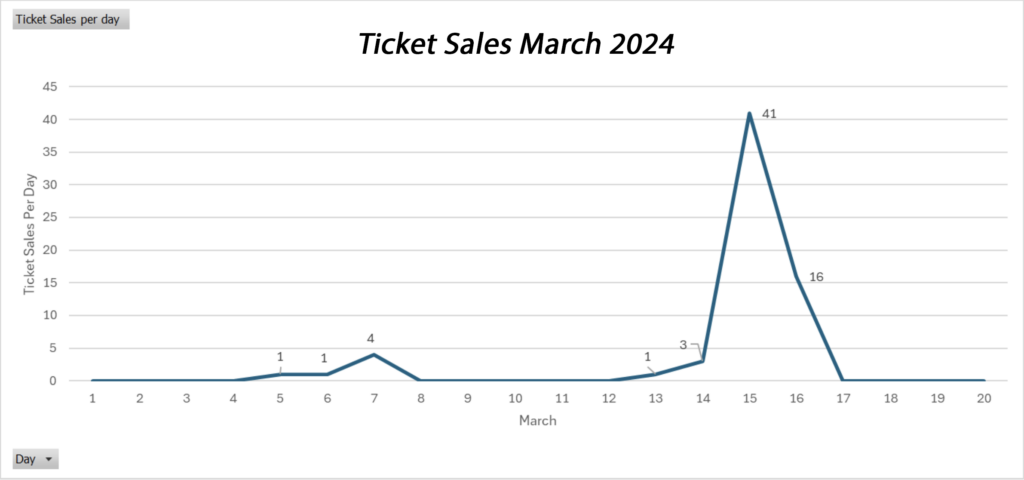
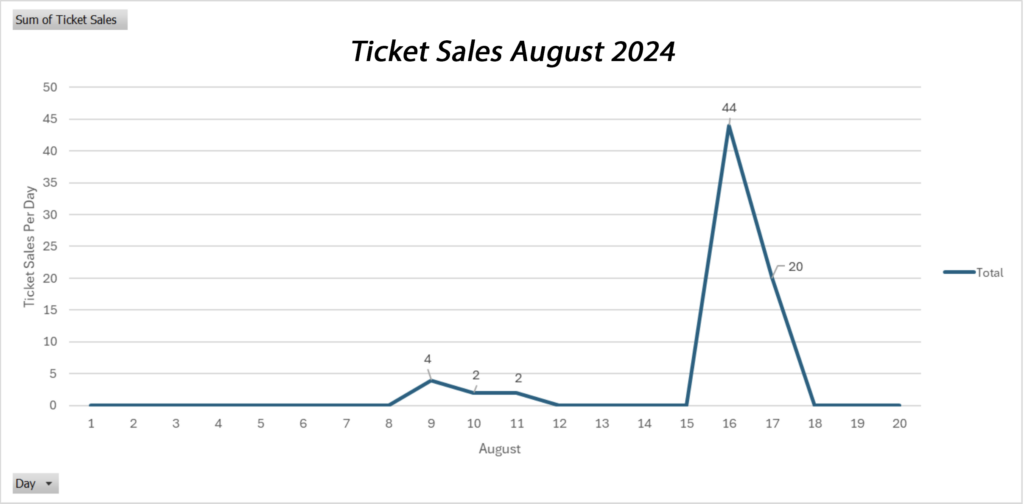
As you can see from the above graphs things were looking pretty dicey for us and our ticket sales right up until the night of the event. This obviously isn’t ideal for promoters who spend the weeks leading up to their event constantly checking the ticket sites to look for illusive sales.
In the cases above a last minute flurry of sales saved us from disaster and this honestly seems to be the pattern now. Whereas a few years ago, particularly pre-covid, you’d expect to see a steady exponential curve in ticket sales in the build up to your event now it’s literally ride and die on the night.
This can negatively impact promoters in a number of ways but the most prominent for me is the lack of certainty around an event can mean you stall plans for future ones as this uncertainty really makes small promoters extra cautious around forward planning. This often means promoter’s subconsciously don’t put as much into their events as they can and second guessing can lead to a lack of momentum in planning which can really hamstring small events.
And hey, I get it. Nobody owes it to us to come to our event. People have lives, are busy and heck maybe just don’t want to come because they don’t like our music. I’m not trying to rally people uninterested in clubbing to get out to those small venues. I’m trying to get those people who are down for enjoying a good party to make that commitment a little bit earlier.
So, What can small promoters do to keep sane?
Since we began running Room2Move almost 2 years ago now there are a few tricks and coping mechanisms I’ve developed to help me remain positive about an upcoming event when pre-sales are remaining elusive. These are:
Change what you measure success by
Gauging the performance of your promotional activity on sales is the wrong way to go in my opinion. People just don’t buy pre-sale tickets anymore; they’ll wait until the night unless your event is so hot it’s guaranteed to sell out.
I think a better way to measure performance is by looking at impressions, post shares, ad / website clicks and verbal confirmations from friends they’re coming to the party.
Essentially how many eyes have you got on the event and for how long. All you can do is make people aware of it and remind them repeatedly on the build up to the day. The sooner you can get your event on RA and Skiddle the better.
Use past performance as an indicator
Since measuring pre-sale tickets isn’t likely to get you very far on the build up to an event it can be quite difficult knowing if you’re doing enough promotional activity. What I’d say to this is: it’s a good idea to use the past performance of a previous event to steer your pre-event promo.
So, if you know you spent £40 on paid ads which got 1600 views and you fliered and postered 3 weeks and 1 week before the event and that led to 85% sales once the event was over use that activity as a baseline for success (Sorry, I appreciate some of this sounds quite corporate but I work in marketing 🤣. I’m trying to keep it as down to earth as possible I swear).
If it worked last time, do the same again. If whatever you did ended up not working then look at why and adapt. Some things you can’t predict, like the bloody weather, so just don’t get disheartened if an event doesn’t go well. It happens to everyone.
Don’t be left feeling like you could have done more on the night
There’s nothing worse than being sat on the door on the night of your event thinking “shit, I could have pushed this harder, I hope people turn up”. Once you get to the night there’s nothing you can do, you should be there to have a great time and make sure everything runs smoothly.
That’s why I’d say: do everything you possibly can to promote your night. I know it can feel a bit cringe jumping on Instagram to blabber at people but it’s much better doing that than worrying you’ve not promoted enough.
The same applies for flyers, posters and paid ads. If you can afford them it’s definitely worth doing, just to give you that piece of mind you’ve left nothing to chance. Plus you never know who’ll see them.
For a long time I felt slightly stupid trying to push an event but ultimately it’s part of the game, once you break past the uncomfort you realise that:
- It’s gotta be done
- Once you get the hang of it it isn’t too much work and can even be pretty fun
What the old guard need to be mindful of
In some parts of social media I have seen people throwing their hands up in despair and pontificating about the end of club culture and moaning that it’s all the fault of the youths who’ve never boshed a blue superman before.
I want to say straight up that moaning isn’t a good look. Especially from some knackered old acid dads waving around their lollipop headphones and crying about how everything was better back in the 90s. No mobile phones innit.
This sort of pasturbating gets us nowhere and only succeeds in alienating the people whose approach to clubbing we want to change.
It’s tough for everyone at the moment and whining no one is coming to your club night doesn’t help.
It’s better to build a positive message around clubbing and really focus on finding a community that loves your events and what you offer the dance community in your area.
What needs to change more broadly to reverse the trend we’re seeing
There is no easy answer to this question and part of me believes there is no way to return to the clubbing landscape of 10 – 15 years ago. The days of small promoters getting guaranteed pre-sale tickets is sadly behind us.
That’s not to say that small promoters will disappear, everyone’s got to start somewhere after all and there will always be people that want to go out clubbing away from the big events to find real connections on the dancefloor and a great vibe in a club.
But I think we have to, at least in the short term, accept that this is more of a niche audience.
It also feels like dance music culture is being dragged towards bigger capacity space and events, insert a comment on late stage capitalism here. With fewer, older promoters hoarding all the power and dancers wanting a guaranteed good time, even if they need to queue 2 hours to get in somewhere, this means the big events are eclipsing all else.
Smaller promoters can kick back at this by focusing on what makes their pirates special, building a real following and community and, where possible, rallying parties goers against the soulless homogenisation of dance music.
